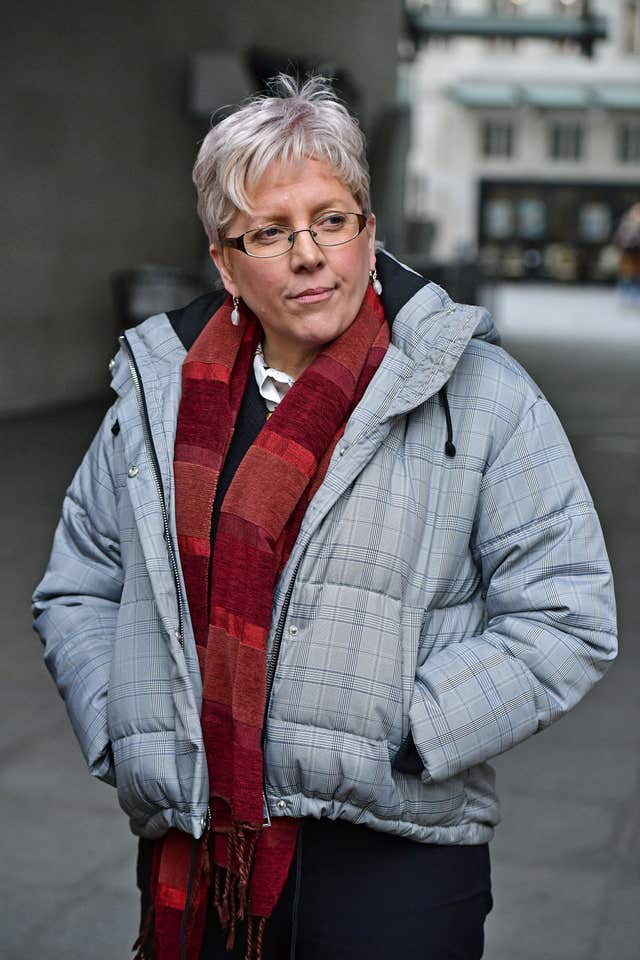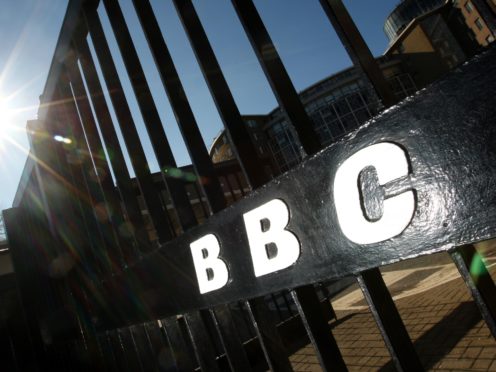A human rights watchdog has launched an investigation into “suspected past pay discrimination against women” at the BBC, it has been announced.
The Equality And Human Rights Commission (EHRC) said that after “looking at all of the information” it suspects that “some women at the organisation have not received equal pay for equal work”.
BREAKING: Today we have opened an investigation into the BBC as we suspect that there has been unlawful past pay discrimination against women at the organisation. Find out more https://t.co/L3EvgOWW0b pic.twitter.com/gSnVMTQ5Lb
— EHRC (@EHRC) March 12, 2019
Its investigation will look at the period from January 1 2016 and is due to be completed by the end of 2019, it said.
In an announcement on the EHRC website, it said the broadcaster had voluntarily provided information regarding pay policies and practices.
The terms of the investigation added: “The Commission recognises that the BBC is undertaking a programme of reform which includes changes to terms and conditions and pay practices.
“The Commission suspects that there has been unlawful pay discrimination by the BBC in the BBC Public Service in the period prior to the introduction of these recent reforms.
“The Commission recognises the BBC’s commitment to reform and its desire to work collaboratively in ensuring that the reforms are fully refined and embedded.”
Investigators will look at sample salaries dating back to January 1 2016, to assess whether the pay differences at the BBC are “because of sex, whether it is direct sex discrimination or indirect sex discrimination”.
Response to EHRC announcement on equal pay at the BBC: https://t.co/hTgQSe97pj pic.twitter.com/KP4p5V2yqz
— BBC Press Office (@bbcpress) March 12, 2019
A BBC spokesman said: “Given the public focus on this important issue we understand why the Equality And Human Rights Commission is looking for assurance on equal pay and we welcome it. It is a logical time to do this as we have gone through a period of significant reform.
“We are confident that the BBC can provide that assurance and indeed go beyond and demonstrate our commitment to be a model for others to follow in this area as a result of our reform programme, although of course we will learn any lessons from the EHRC’s work as we continue to deliver change.
“The EHRC’s terms of reference acknowledge the programme of reforms the BBC has been undertaking. If they had worked with us prior to our reforms, they would have found a very different organisation.
“Some of the criticism levelled at us over this period was very fair as change was overdue. We believe our pay structures are now fair, transparent to staff and stand very positive comparison with other organisations.
“Over the past two years we have actively encouraged people to come forward with questions over their pay. Many of these have been routine queries, and we have now resolved more than 85% of them.
“We also commissioned independent reviews which did not find systemic issues of pay discrimination but, along with work we’d already been doing, identified improvements to our pay structures which we have been making.
“As we have already acknowledged, we have some historic equal pay cases. We are profoundly sorry for this. We regret the time it has taken to resolve all of the questions, but some of these are complex and have not been straightforward to resolve. We are determined to make progress on the remaining ones.”
The EHRC has previously announced it was launching an enforcement process against the Labour Party over allegations of anti-Semitism, which could lead to a formal investigation.
Damian Collins, chairman of the House of Commons Digital, Culture, Media and Sport (DCMS) select committee, said in a statement he is “pleased” the EHRC will be investigating the BBC over equal pay.
He said: “The select committee set out its concerns in our recent report on the BBC that they had failed in their obligations to ensure that men and women were being paid equally for work of equal value.
“Having taken evidence from many women at the BBC, the committee is also concerned that there remain a number of outstanding grievance cases with no clear end date in sight for their resolution.
“It is right that the EHRC will not just be reviewing whether there were discriminatory pay policies at the BBC, but also the effectiveness of the system for grievances to be heard fairly.
“This has clearly been a very distressing time for many BBC employees, and we would all like to see these matters brought to a successful conclusion.”

MPs on the DCMS select committee have previously accused the BBC of “an invidious culture of discrimination” against women on the payroll in the wake of the resignation of former China editor Carrie Gracie.
